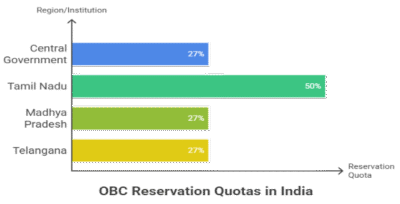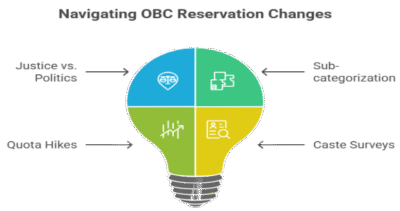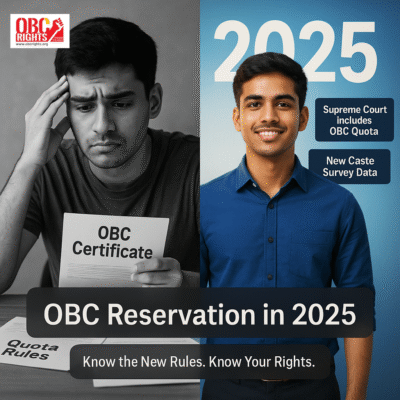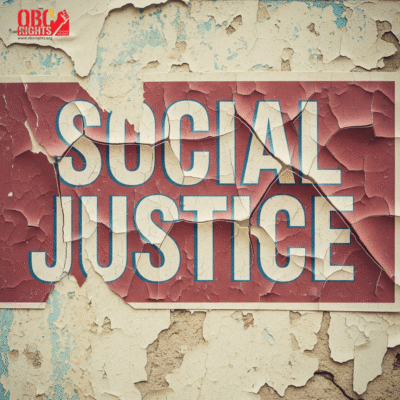India’s reservation system has always been a topic of debate, but if you’re an OBC student or job aspirant in 2025, this is a year of major shifts. From legal reforms to new surveys and political shifts, the landscape is evolving rapidly—and you need to be ready. Let’s break it down clearly about the OBC Reservation in 2025.
What is the OBC Quota Today?
Currently, 27% of seats in central government jobs and educational institutions are reserved for Other Backward Classes (OBCs)—but only for those in the Non-Creamy Layer (NCL). This means the applicant’s family income must be below ₹8 lakhs per year, although there are ongoing demands to raise this ceiling. This quota applies to All India Level / Central-level Competitive Exams and Institutions.
State-level OBC quotas may differ. For example, Tamil Nadu offers up to 50% reservation for OBCs, while states like Madhya Pradesh and Telangana are considering increasing their OBC quotas beyond 27%.
What Changed in 2025?
Supreme Court Introduces OBC Quota to Its Staff Recruitment:
For the first time ever, as of July 2025, the Supreme Court has implemented the OBC quota in its own recruitment process. This sends a strong message: Reservation is not just policy—it’s a principle.
Caste Surveys Are Back, and They Matter,
Several states—like Telangana, Bihar, West Bengal, and Jharkhand—have completed or are conducting caste-based surveys. These surveys reveal that OBCs constitute over 50% of the population in many states.

Why is that important? Because this data could justify increasing the quota limits and restructuring how benefits are shared within the OBC category.
Legal Push for Sub-Categorization
Not all OBCs are equally backward. That’s why there’s growing support for dividing the OBC quota among more and less backward groups—so that dominant communities don’t take the lion’s share. This is called OBC sub-categorization, and courts are starting to support it.
What Students & Job Seekers Must Do in 2025
Check your “Non-Creamy Layer” certificate
Most institutions now require a fresh certificate (usually issued after April 1 of the current year). If your family’s income is above ₹8 lakh or you hold certain posts, you may be disqualified.
Follow State-Specific Rules
States like MP and Telangana are modifying OBC rules and rosters. Always refer to official websites for the latest eligibility and reservation changes.
Watch for New Opportunities
With upcoming caste data and legal reforms, many expect additional seats or special quotas for sub-categories within OBCs. That could mean better chances for some aspirants in the coming year.
Be Informed, Stay Ahead
Join forums, follow credible news, and track state notifications—because your eligibility can change based on where you live, what certificate you hold, or new government policies.

Is the 50% Cap on Reservation Breaking?
In 2025, this stands out as a major question. The Supreme Court’s 1992 judgment (Indra Sawhney case) set a 50% cap on total reservation. But with new caste data and political momentum, many states are pushing to go beyond that limit.
If the central government includes caste in the 2026 Census, it could open the door for nationwide changes in reservation structure.
Final Thoughts
If you’re an OBC student, job aspirant, or simply someone who cares about equal opportunity, 2025 is not just another year—it’s a turning point.
The rules are changing.
The data is arriving.
And the debates are louder than ever.
But one thing is clear: Reservation isn’t disappearing—it’s evolving and strengthening. So be aware. And most importantly, know your rights in the field of Education and Job opportunities.



